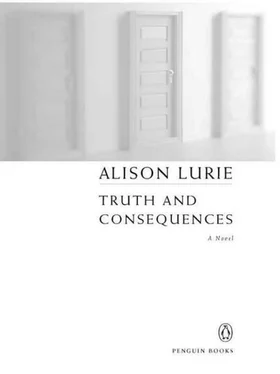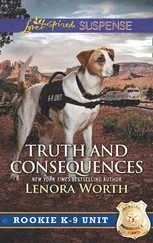“Yes, of course, I understand, that’s all right,” Jane always said. But it wasn’t all right, it was all wrong.
Alan hadn’t complained of pain much at first, but as time went on he mentioned or showed it more and more often: he groaned when he got out of bed or lay down, and cursed violently when he dropped anything. Of course, everyone complained when they were ill or injured, Jane told herself at first, and then they got better and stopped. Or, if they didn’t get better, they got medical help. And indeed, when his back didn’t improve after a few weeks, Alan, with the upbeat decisiveness that had for so long been part of his character and had made him such a successful department chairman, sought this help.
According to the experts, his problem was something called a slipped disk, which as Jane understood it meant that a kind of spongy pad between two of his vertebrae had slid out of alignment and was pressing on the spinal nerves, causing continual pain. Sometimes these disks slid back into place after a while, the doctor told them, and sometimes they did not. There were, he was told, many different treatments that might help.
For the next ten months, therefore, Alan consulted a series of health professionals. Each one approached his problem with new suggestions, and each time Alan and Jane hoped for a while that they had found the solution. But every treatment ended in disappointment, and some of them in rage and despair and increased pain. By Christmas Alan had seen what one of his colleagues had described as four physical therapists, three orthopedic surgeons, two neurologists, and an acupuncturist in a pear tree: a peculiar pale woman who worked in a cloud of smoky fruit-flavored incense and had inserted needles into Alan’s back and shoulders and then left him to lie in pain for half an hour listening to oriental music while she spoke on the phone in an unknown language. He had submitted to agonizing injections of cortisone and other substances, and practiced many different sets of exercises. He had sat and bounced on various inflatable devices, including one that looked like a dull black rubber donut and another that resembled a giant shiny electric-blue beach ball.
In April, when nearly a year had passed without any change, Alan and Jane went to stay in a pretentious and unpleasant luxury hotel in a large city four hours’ drive away, so that he could undergo what was called a diskectomy. According to the surgeon, this operation was usually relatively painless and had a ninety-five percent chance of success. In Alan’s case, this turned out not to be so. After the operation, in spite of large doses of narcotic drugs, he was in continual agony, and his pain did not improve; rather it spread and worsened. As one of Jane’s less sympathetic friends said at the time, “Well, somebody has to be in the other five percent.” Before the operation the doctor had announced that usually there was immediate relief. At the follow-up interview afterward, however, he claimed that sometimes it took several months. But by this time, Alan did not believe a word the doctor said.
Since then, he had treated his pain himself. He used heating pads and icepacks, and wore an electronic device called a Tenz Unit that was supposed to block nerve impulses and sometimes did so. He also took a great many prescription and nonprescription drugs. Unfortunately, the drugs all had side effects and led to new complications and ailments. Alan now suffered intermittently from constipation, severe headaches, insomnia, chills, leg pain, groin pain, weakness, and fatigue. The Tenz Unit had caused an ugly raw red rash to appear on both sides of his lower back. He was also eating too much, and not only at meals. Jane would come upon him in the pantry gobbling peanuts out of a can, or cookies from a cellophane package. Late at night she would sometimes hear a noise in the kitchen that could be mice or burglars and would tiptoe down the stairs to find Alan standing in the half dark in front of the fridge, spooning vanilla ice cream from the cardboard carton into his mouth.
“Jane?” called a grating voice from below. “What the hell is going on up there?”
“Just coming.” She snatched three pillows of varying size and consistency off his side of their bed and ran downstairs.
“Sorry I yelled at you.”
“That’s all right,” Jane assured him, thinking at the same time that Alan now yelled at her, or at something else that had irritated him, more and more often. Afterward he always apologized, and seemed to assume that canceled out the yell.
“And the ice,” Alan reminded her. “If you could get me the ice now.”
“Sure, right away.” She headed for the kitchen and opened the freezer, which over the last year had become crowded with refreezable plastic icepacks.
“Here you are.” Jane held out a large white sagging object.
“Not that one, it’s too heavy.” He shoved her hand away with a grimace of irritation. “Jesus Christ. I need the little blue packs. Both of them.”
“Sorry.”
“That’s better,” he said a minute later. “And could you maybe bring me a towel to wrap them in? It keeps them cold longer.”
“Yes, of course.” Jane climbed the stairs again, found a clean hand towel, brought it down, wrapped the icepacks in it, and helped Alan settle them between his back and the back of the sofa. “Is there anything else?”
“Not just now, thanks.” He groaned and closed his eyes.
Though Alan had not said so directly, Jane knew he now suspected that his back would never get better, and in fact would probably get worse. He was in almost constant severe pain, except when he was so full of drugs that he was woozy and unsteady on his feet as he had been this morning. In the late afternoon and evening the pain sometimes became so bad that he would have a shot of vodka, or two, or three, though labels on the pills he took clearly stated that it was dangerous to mix them with alcohol.
Pain, according to the nineteenth-century novels that Jane’s Aunt Nancy had loved as a child and presented to her at Christmas and birthdays, could be ennobling and inspiring. In What Katy Did and Jack and Jill , thoughtless young girls, injured in accidents at play (like Alan) had to lie in bed for months, during which time they matured wonderfully and their characters changed for the better.
But Alan hadn’t needed to change for the better, Jane thought: he had been perfect as he was. So, logically, he had begun to change for the worse. His admirable evenness of temper, optimism, and generosity of spirit had slowly begun to leak away. He had become overweight and unattractive, he had become self-centered and touchy.
Those books were wrong, Jane thought. Pain is bad for the character, just as all misfortunes are: poverty and unemployment and loss of friends and family. It makes you tired and weak; it makes you depressed and anxious and fearful. Nobody says this, nobody is supposed to say it, but it is true. Even Jane herself, who was only forty and healthy and strong and attractive, would one day be old and tired and ugly and probably self-centered and touchy as well.
“Ja-ane.” Alan’s voice was tense.
“Yes?” She stopped washing lettuce and hurried to the sitting room.
“Could you possibly get me the bottle of Valium from my toilet kit, and some cold grapefruit juice to wash it down?”
“Yes, of course.” Jane ran upstairs and down, filled a glass with grapefruit juice in the kitchen, and added two ice cubes.
“Thank you.” Alan drank. “Yes, that’s good,” he said, smiling at her. But then, as he lifted the glass again, his arm struck the arm of the sofa, and the rest of the grapefruit juice spilled onto the coffee table and the carpet. “Oh, fuck!” he shouted in a sudden rage. “I didn’t need that.”
Читать дальше







![Кэмерон Доки - Правда и ее последствия[Truth and Consequences]](/books/79610/kemeron-doki-pravda-i-ee-posledstviya-truth-and-con-thumb.webp)




